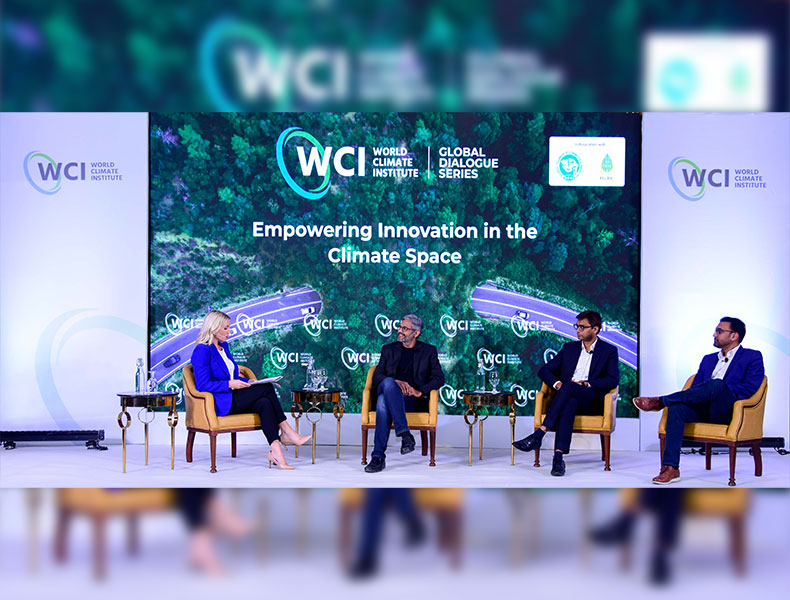
January 7, 2023
Speakers:
As renewable energies gain widespread cost competitiveness across the world, developing an ecosystem of green fuels and industries is crucial and requires holistic thinking in terms of understanding inter-dependencies among physical and financial sectors of the economy. This panel discussed cross-sector public private partnerships and an innovation ecosystem required to support start-ups and new tech, and for the businesses to initiate dialogues and influence policy framework that enables de-risking and incentivising investments.
The session witnessed the three panellists talking about the solutions their firms provide along with the challenges they can spot and what the future looks like.
Given the real estate and infrastructure contributes to over 40 per cent of the global CO2 emissions, the moderator probed Sumeet Popli by questioning how Accacia is playing a role to alter and reduce this estimate. Sumeet Popli shared the basis of the concept of how Accacia is trying to integrate the entire ecosystem for the real estate sector. They are trying to develop a platform to help individual asset owners and developers understand CO2 emissions coming from the individual assets they own. Additionally, the platform seeks to bind all the science known in this field to estimate what needs to be done on their assets, accordingly, recommend decarbonisation strategies. Highlighting a genuine challenge, he added that the real estate sector lacks a mechanism to calculate the number of CO2 emissions manufacturers are generating on their product. He further highlighted that approximately 30 per cent of emissions are coming from the built environment, from the buildings we are sitting in. Once declarations come in from manufacturers, then the reduction and improvement process can take place.
Kunal Prasad discussed in detail the challenges he faced in 2010 when they wanted to connect with everyone at the grassroot level, however, the required level of technological progression had not taken place. Talking about the present scenario, he added that the agriculture sector understands the level of impact tech and digitalisation can create on banking, insurance, farming, reduction in risk, better supply chain management, awareness levels, and improvement in productivity for the small holder farmers.
Rudra Dalmia began by applauding the recently launched Green Hydrogen Mission as one of the most forward-thinking projects with optimal capital investment. Talking about the way forward, he cited one of the major bottlenecks as being a unit of measurement, to measure impact value. He argued, there is no real measurement framework out there, even for ESG. If one cannot measure it, you cannot change it. Further, he added that India needs to come out with its own standards, instead of following the international ones. Right incentives even for farmers can be created, only when impact can be measured. While commenting upon the value of PPPs in the climate change space, Rudra Dalmia added that there is a need to reduce the blended cost of capital for climate entrepreneurs, it can only happen if the government also steps in and cheaper green bonds can be attracted from other countries. Lastly, he termed the incentive schemes and PPP models followed both in Surat and Ahmedabad as best examples for India.
To know more about World Climate Institute and its initiatives subscribe to WCI
October 18, 2023
January 7, 2023